A Viewpoint from a Local Born Filipino
Whenever the Evangelista clan gathers at my 93 year old Mom’s home on South Papa Avenue in Kahului (the pink house), my Mom insists that before we eat or drink anything, we have to atang.
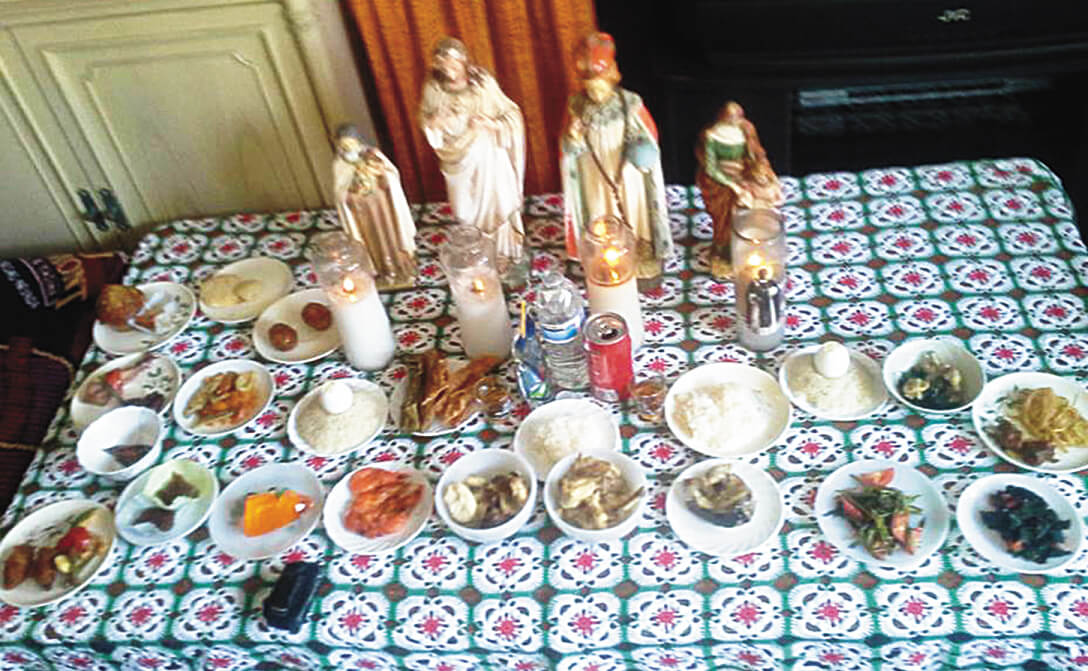
Photo: Alfredo Evangelista
Atang from what I understand is an offering to our deceased family members. As part of the atang tradition, my Mom Catalina Gonzales Evangelista taught me, we invite our departed loved ones to partake in our food. Umaykayon amin, awan ti ablablabas. “Come all, no one is left out” is the call to the spirits of our family members who have gone before us, like my Dad Elias, my brother Rogelio, my sister Lolita, my grandparents (Martin and Margarita on my Mom’s side; Cirilo and Petra on my Dad’s side), my uncles (especially Mariano and Pascual who were “ordered” by my Dad and Mom), my niece Jolita, and of course my great aunts who hanai’d my Mom at the age of five (Lila Balbina, Lila Honorata, and Lila Justina), and others in our extended family tree like Uncle Crispulo and Uncle Melquiadez. When we celebrate my Dad’s birthday or his death anniversary, we have to make sure we atang his favorite drinks of root beer, cream soda, and sprite. (He was not too much of a beer or whiskey drinker).
I will admit that as a local born Filipino, I’m not completely aware of all Filipino traditions and superstitions. My spoken Ilokano is what I call pidgin Ilokano and my friend Danilo (or his Americanized name Danny) Agsalog claims that I am sadut… in speaking Ilokano. Danilo places me in the company of non-fluent Ilokano speaking local boy Gilbert Samuel Coloma Keith-Agaran as sadut speakers of Ilokano. When my clients ask me if I can speak Ilokano, I can reply bassit latta. Of course when they ask me if I can speak Tagalog, I reply hindi. So far I’ve been lucky because no one has asked me if I can speak Igorot, Kapampangan, Visayan, or any of the other 70-plus Philippine languages that I wouldn’t know how to respond.
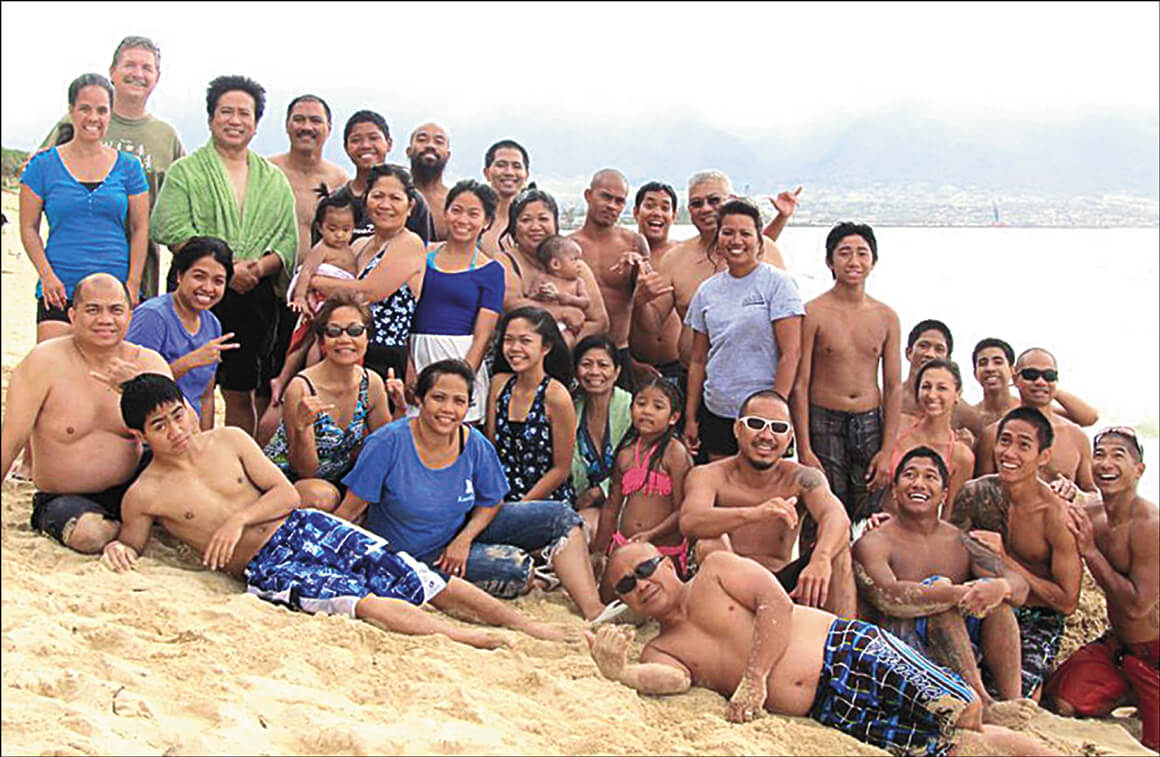
Photo courtesy Basilia Idica Evangelista
But even though I don’t speak fluent Ilokano or any other Philippine language, I do practice atang. Even when we’re barbecuing at home in Waikapū, my wife Basilia Idica Evangelista and I make sure we offer atang. Sometimes when I’m barbecuing and I drop a piece of meat when I’m moving it from the barbecue grill to the plate (and I’ve already tasted what’s on the grill), I say “Ala! We never atang yet.”
To some, the practice of atang may seem not to be steeped in religion. But my Mom is very religious and was quite an evangelist when she was younger. She would go around with her best friend at that time Mercedes Vila and her neighbor Magdalena Nefulda (the three were part of the Paukūkalo gang along with the A.B. Sevilla family) to invite folks to join the Philippine Independent Church which was meeting at Good Shepherd Episcopal Church in Wailuku. I think she was quite successful. I always tease my Mom that atang seems inconsistent with what the Bible teaches us about sacrifice and offerings… loving God and neighbor trumps sacrifice (Mark 12:28-34). But my Mom would hush me and say Saanka agsarsarita or something equally deep in Ilokano that I can’t really translate to English.
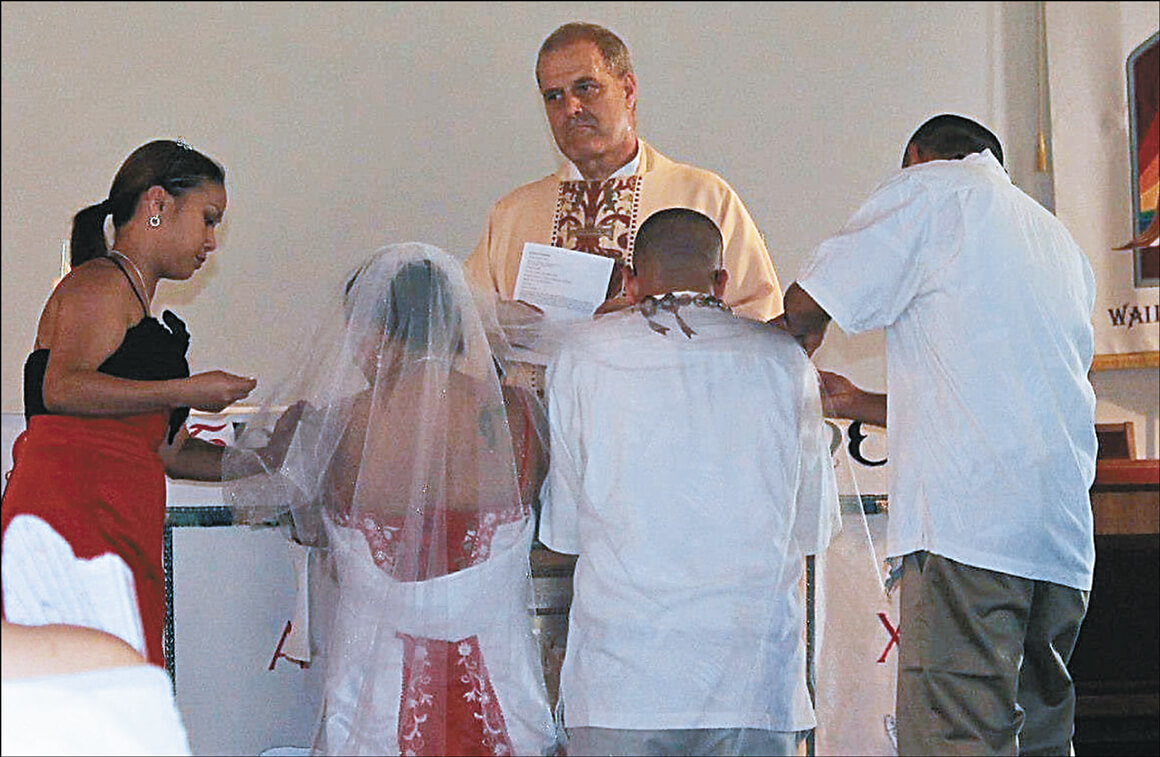
Photo: Francis Ramos
With Halloween coming up, I thought it would be interesting to explore some Filipino traditions and superstitions. I spoke to local Filipinos—especially folks who I consider religious—to learn about their family practices revolving around birth, marriage, and death. I even refused my cousin Manang Shirley Evangelista’s offer to loan me her book about Filipino traditions and superstitions because reading is getting to be a lost art and also because much of cultural tradition is often passed down orally.
When one dies, prayers or Novena are usually held and the number nine is somehow involved. I always get mixed up whether it’s nine days before the funeral or nine days after death. Nowadays, we don’t have too much control because the funeral is set by the availability of the church, the mortuary, and the cemetery. According to Gavina Dadis from Laoag City, you’re supposed to prepare atang for the dead and you’re supposed to have the prayers nine days after death because the nine days is symbolic to the nine months the person was in the womb.
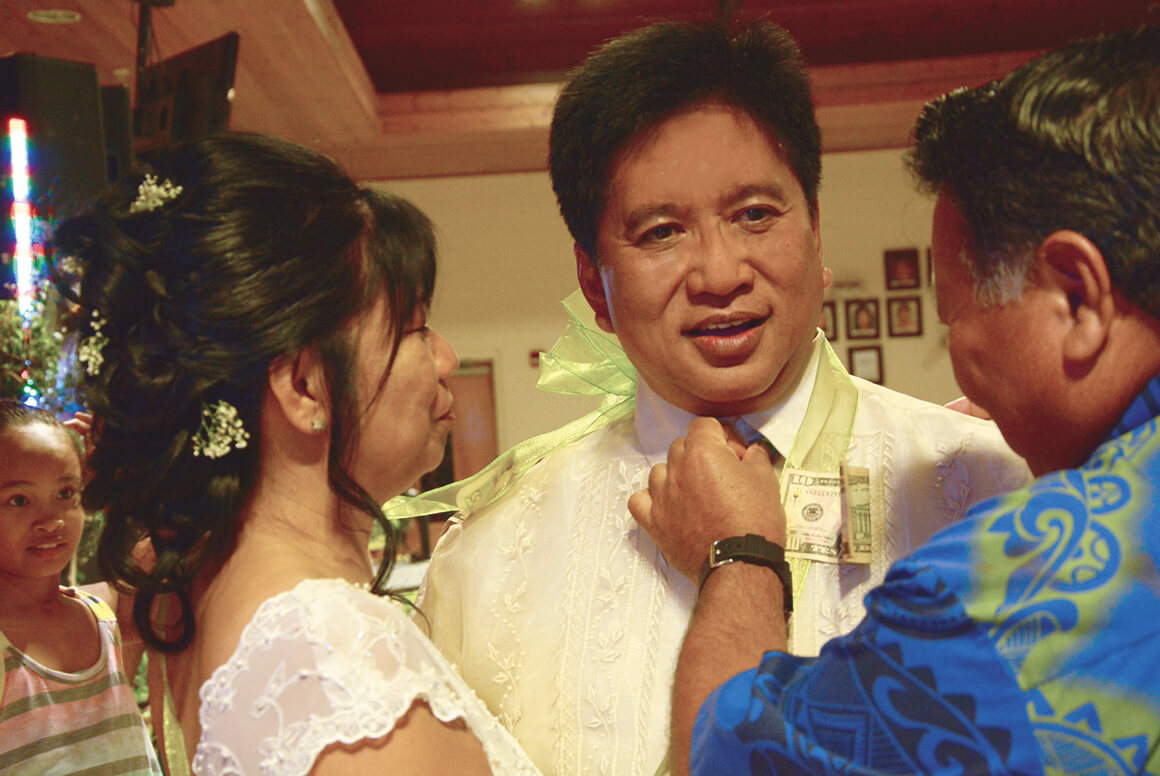
Did you know that you’re not supposed to serve marunggay during prayers for the deceased? Virginia Yadao Pasalo from Sinait, Ilocos Sur claims that if you serve marunggay during prayers, it will harken someone to follow in death. Nana Dadis explained the marunggay leaves fall down easily. I never knew this until my brother Rogelio’s death in 2013. Someone brought marunggay for the prayers and someone else advised my wife not to serve it. When it wasn’t served, the person who brought it was a little curious why her marunggay wasn’t served; evidently she wasn’t aware of that superstition.
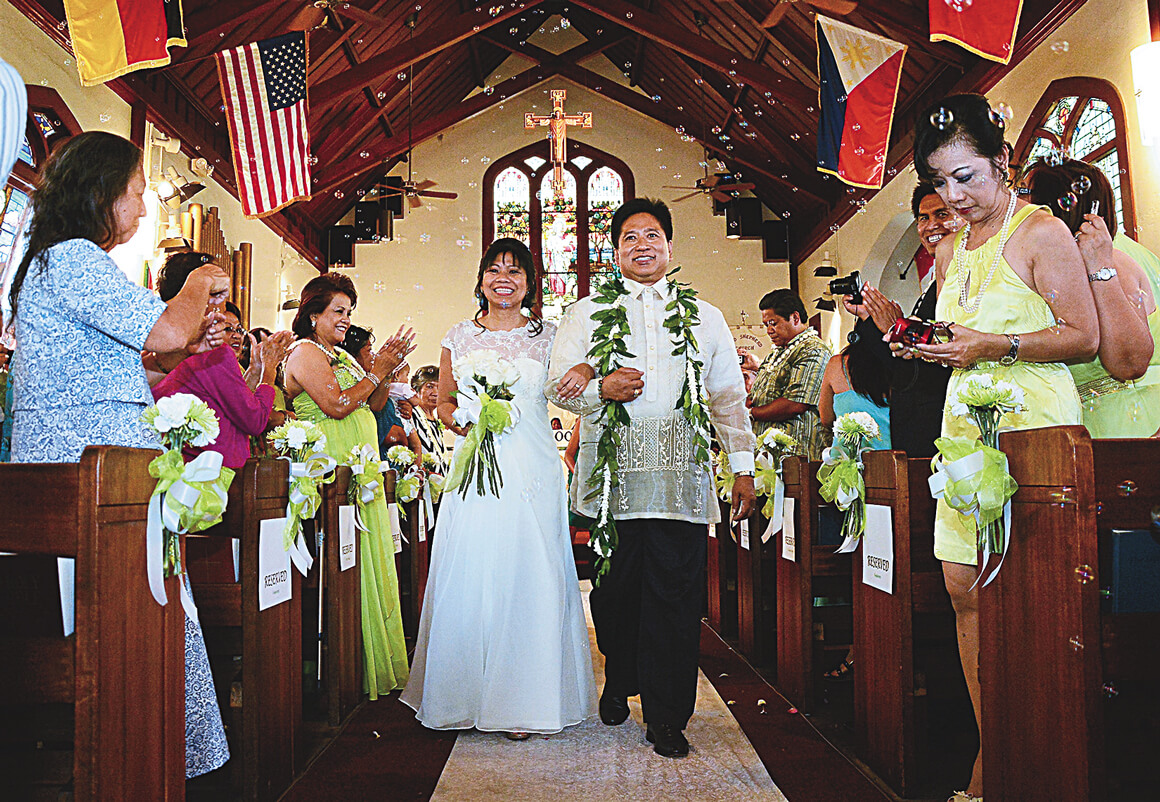
Nana Dadis also said don’t sweep during funerals because it will disturb the spirit. Caridad Manuel, 90-plus years old from Banna, Ilocos Norte, said you can’t sweep the house because they will take you—Alaenna tayo amin. Lilia Zalsos Ross from Iligan City, Mindanao said when you have the wake service at home, don’t sweep the floor while the body is still at home or before it is buried. Lilia also says you’re not supposed to take a bath as part of the mourning process. There’s even a superstition/tradition about the food you eat. According to Ronnie Paguirigan Pasalo from San Nicolas, Ilocos Norte, don’t eat sour foods otherwise the food at home will always taste sour.
Orlina Cajigal Cala from Badoc, Ilocos Norte says when someone dies, pukpukel the baby or even the adults just in case the spirit touched the person. After you return from the burial service, you have to diramos—wash your forehead, hands and the back of your neck with a mixture of water, vinegar and guava leaves. Only a widow can do this for the immediate family members. I recall some widows would also slap your forehead as part of the ritual.
My family also practices gulgol or cleansing in the ocean. When my grandmother Margarita Gonzales died in 1997, our family went to the beach called Camp One early in the morning around 7 a.m., and every member of the immediate family waded into the ocean and was shampooed with the same mixture of water, vinegar and guava leaves. My family repeated this tradition when my dad Elias Acang Evangelista died in 2000 and when my brother Rogelio Gonzales Evangelista passed in 2013. Sadly, this solemn tradition of gulgol was highlighted during one of Hawai‘i’s most notorious murder cases when Orlando Ganal, after killing his in-laws and his wife’s lover’s brother and two children, went into the ocean to cleanse himself. Yikes!
One of the most interesting funeral traditions I had not known is practiced in Cebu and other Visayas areas. Liezl Oandasan shared that before you bring the casket from the house to the church, the pall bearers will raise up the casket by the door so everyone will exit out the house under the coffin. Ross says that all the relatives, from children to grandchildren, has to go under the coffin.
Oandasan also says that you need to break a cup and saucer to make sure the departed loved ones will go in peace. While you’re at the cemetary, Dolores Paguirigan Garcia from San Nicolas, Ilocos Norte, reminds us we should not step on the graves otherwise the spirits will hold your feet.
The time between death and burial is often a trying period with the multitude of preparations undertaken by the bereaved family. To me, one tradition that is quite inconsistent with Christianity is the placement of items in the casket. When my Dad died, my Mom insisted on placing stuff like coins, clothes, and other items in his casket. Other families have done the same thing. Cala said when Mama Juana Cajigal died, they were sure to place different things in the coffin that she used when she was alive. “For example, we placed bingo cards in Mama Juana’s casket because she loved bingo,” said Cala.
As the ancient Greeks placed coins to pay Charon for passage over the River Styx, Juana Ngayan of Solsona, Ilocos Norte explained they put money in the casket: “So they have money to travel.” When my Mom explained my Dad would need money and it had to be coins so that he could cross the river Jordan, I admit I was very skeptical. I said, “Mom, how do you know they don’t give change? What if they don’t take American coins? Who do they give the coins to?” I recall even imploring my Mom that if she really believed in God, she wouldn’t need to follow the old time traditions and superstitions. I asked her, who told her all this stuff. She replied the bakbaket—the old ladies. I knew I wouldn’t dissuade her but I sort of argued with her to take her mind away from the grief she was experiencing after losing my Dad. Of course, my Mom won and I even convinced my son Christian Allen Evangelista and daughter Danielle Anne Evangelista to place some of their drawings in my Dad’s casket.
But my Mom forgot to place a blanket in my Dad’s casket. One night, my Dad appeared to my Mom in a dream and said he was cold. My Mom felt bad. When my Ninong Ramon Campos died a year later, my Mom received permission from my Ninang Avelina Campos to place a blanket in Ninong Campos’ casket as a balon for my Dad. Later, my Dad appeared to my Mom in a dream and told me he had received the balon from my Ninong Campos. My Dad and my Ninong Campos were very close, fellow 1946 Sakadas, compadres many times over, and from the same town of Paoay in the Province of Ilocos Norte. My Ninong Campos was a carpenter and helped my Dad build our family house (yes, the pink one with green trimmings) on South Papa Avenue. When my Dad died and I was in the receiving line, I saw my Ninong Campos and my eyes welled up in tears because my Ninong Campos was like a brother to my Dad. Little would I know that my Ninong Campos would provide an even more comforting service to my family when he himself passed.
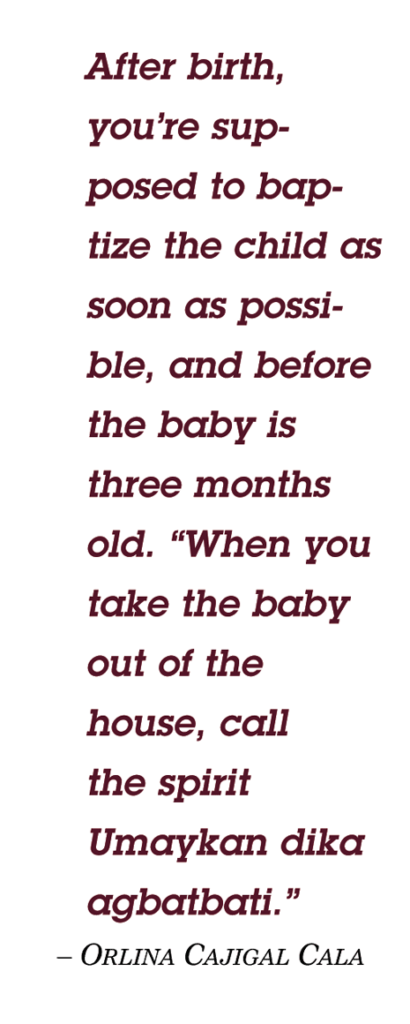 When I lived in Honolulu, I was appointed as a Public Member to the Real Estate Commission by Governor Benjamin J. Cayetano. We had four meetings each month and members of the Commission would go to lunch, usually at a Chinese restaurant. We would host the neighbor island commissioners: Michael Ching from Kaua‘i, Al Imamura from Maui, and Charles Aki from the Big Island. After lunch one day, I accompanied Ching to shop in Chinatown. His father recently passed and he wanted to get some stuff for his Dad. Ching explained he needed to get a miniature paper car for his Dad so that his Dad could drive around. I was intrigued that not only my culture honored the dead with a variety of superstitions and traditions. Even the Japanese have bon dances to welcome and recall the spirits of the dead, something I try to participate in from time to time (I don’t go only for the food). Some of our traditions are even similar. Filipinos, like Chinese, are told not to wear red at a funeral. In 2004, at the funeral of Aunty Felipa Cacayorin, I had to mention to Father Marvin Foltz at Good Shepherd, that he shouldn’t wear a pinkish/reddish shirt. By that time, Father Foltz had been at Good Shepherd for over five years and he expressed surprise because no one had told him of that practice. Nevertheless, Father Foltz who had come to understand the intricacies of Filipino culture, quickly changed his shirt into a somber black.
When I lived in Honolulu, I was appointed as a Public Member to the Real Estate Commission by Governor Benjamin J. Cayetano. We had four meetings each month and members of the Commission would go to lunch, usually at a Chinese restaurant. We would host the neighbor island commissioners: Michael Ching from Kaua‘i, Al Imamura from Maui, and Charles Aki from the Big Island. After lunch one day, I accompanied Ching to shop in Chinatown. His father recently passed and he wanted to get some stuff for his Dad. Ching explained he needed to get a miniature paper car for his Dad so that his Dad could drive around. I was intrigued that not only my culture honored the dead with a variety of superstitions and traditions. Even the Japanese have bon dances to welcome and recall the spirits of the dead, something I try to participate in from time to time (I don’t go only for the food). Some of our traditions are even similar. Filipinos, like Chinese, are told not to wear red at a funeral. In 2004, at the funeral of Aunty Felipa Cacayorin, I had to mention to Father Marvin Foltz at Good Shepherd, that he shouldn’t wear a pinkish/reddish shirt. By that time, Father Foltz had been at Good Shepherd for over five years and he expressed surprise because no one had told him of that practice. Nevertheless, Father Foltz who had come to understand the intricacies of Filipino culture, quickly changed his shirt into a somber black.
Our cultural traditions and superstitions go beyond atang and the rites of funerals. Weddings are full of traditions. At the wedding service, the couple has the veil, cord, candles, and coin. When my niece Ashley Acidera married Shawn Macugay earlier this year, they went the whole nine yards. My wife and I were the veil sponsors which is a symbol to clothe them as one. We happily participated in this tradition. Good Shepherd’s new priest from Canada, Father Craig D. Vance wanted to utilize his own tradition and have the bride and groom give the bread and wine to the communicants but the Nanas and Tatas, especially my Aunty Magdalena Clemente Evangelista quickly shut that down.
Of course, one of the more curious traditions at many local Filipino weddings is the money dance. Traditionally the money was placed between the lips of either the bride or groom and passed on to the spouse who would receive it and then release it while attendants gather the money in a basket. When I was a young kid, the Master of Ceremonies would implore folks to give a lot so the newlyweds would have enough money to go on a honeymoon! When I was in Los Angeles attending the University of Southern California, I was invited to a wedding for my cousin Lurline Mangosing and Hiddo Netto. Their money dance tradition involved simply pinning money on the bride if you were male and on the groom if you were female. You would dance with them until the next guest would tap you on the shoulder to cut in and place money. I’ve even been to Filipino weddings where the couple is so health conscious that they announce they will not place the money between the lips. Ay caramba! I guess I’m more traditional so when Bessy and I got married, we had no problem with placing the money between our lips. It was fun to do and very challenging because some of our guests, especially our Ninongs and Ninangs placed the money all over the place. Even Maui Mayor Alan Arakawa got into the act!
There are other, more serious Filipino wedding superstitions and traditions. Oandasan says that after the mass and before the celebration, the grandparents will comb the bride’s hair from a glass of water. After combing the bride’s hair, the grandparents will then ask the bride to drink the water in the glass then throw rice grains unto the newlyweds for a good and lasting relationship together and more blessings. Ross’ tradition and belief about combing the bride’s hair is similar to Oandasan’s. “When my sister got married, my parents (or whoever raised the child) have to comb the hair of the bride so the marriage is smooth like combed hair,” said Ross. “We call it hapsai; very nice and smooth.”
In Hawai‘i, gone are the days (mostly) of throwing rice at the bride and groom while they walk down the aisle after the ceremony. When Kallie Keith married Gilbert S. Coloma-Agaran, there was no rice thrown because of its affect on birds; rose petals instead were thrown. At our wedding, our wedding coordinator Dulce Karen Butay procured bubbles to blow while we processed down the aisle. I must admit that bubbles made for a great photo.
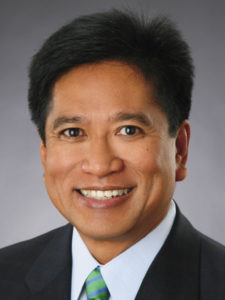
Ross says that if somebody is not happy about you getting married—like an ex-lover, wherever the celebration is held, don’t place the pots upside down. “I think it’s because the marriage won’t be successful because the pot is down, it’s empty,” explained Ross.
Another notion is if your marriage doesn’t go smoothly, perhaps you weren’t in step. Julita Balagso Ibanez from Sinait, Ilocos Sur said “When you get married, when you walk in the church, they told me not to go first but to step together.” Cala explains if the girl goes first, the bride will be the boss, which explains a lot … just kidding!
There are also quite a number of traditions and superstitions involving birth. After birth, Cala says you’re supposed to baptize the child as soon as possible, and before the baby is three months old. “When you take the baby out of the house,” Cala says, “call the spirit Umaykan dika agbatbati.” Ibanez says after birth, you’re not supposed to lift heavy things and to stay away from the rice fields because if you go into the water, you will get sick. Dadis says after birth, take a bath with boiled guava leaves for healing purposes. Garcia said “don’t eat cold foods because your stomach will come funny.” Ross says that you can only eat certain types of food. “You can only eat fish that is clean, for example tilugon is good. But don’t eat shark or sting ray.” Ross also warns that when you’re pregnant, you’re not supposed to eat food that is not nice to look at because your baby will look the same. “For example, don’t look at ugly things—if you look at the monkey, some part of your child will resemble a monkey, e.g., your child’s hair may be monkey-like.” Judge for yourself what Ross was looking at when she carried Sharon Zalsos.
Oandasan shared that when one is giving birth, tires will be burned during labor, especially if you’re delivering at home. The burning will chase away bad spirits, explains Oandasan. It is almost similar to the practice of the family of Aurea Peros Tagorda which burned a log in front of the family home when prayers were held after she passed.
While we may not always agree or continue all our superstitions and traditions, it’s part of our culture and in some cases, shared by other cultures on Maui. For this local born Filipino, these traditions are important, especially because my 93-year old Mom considers them to be. After all, Mother knows best. Thanks be to God!
